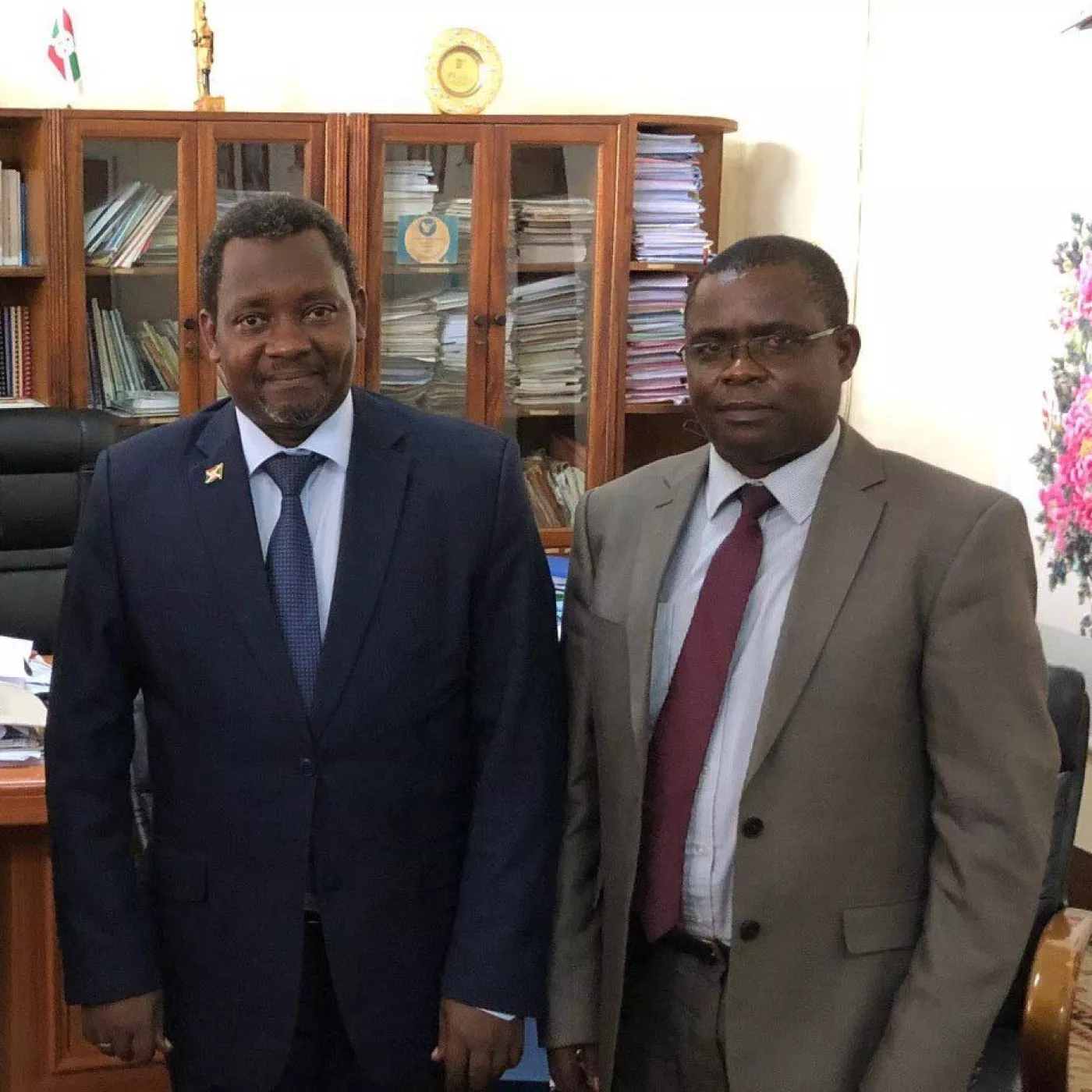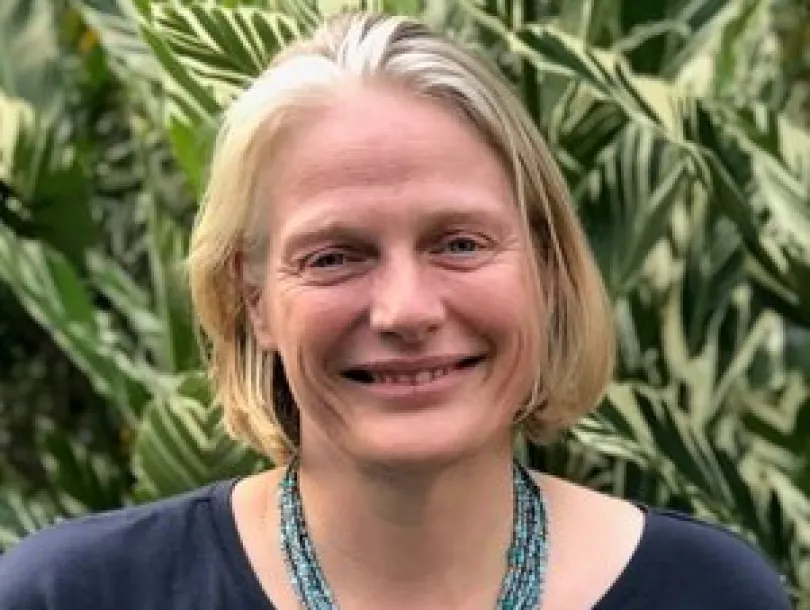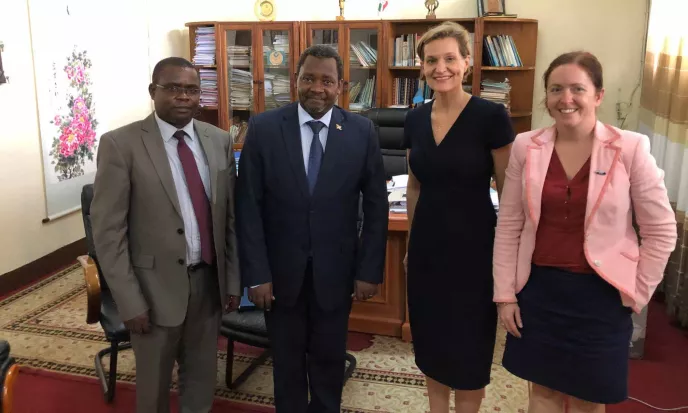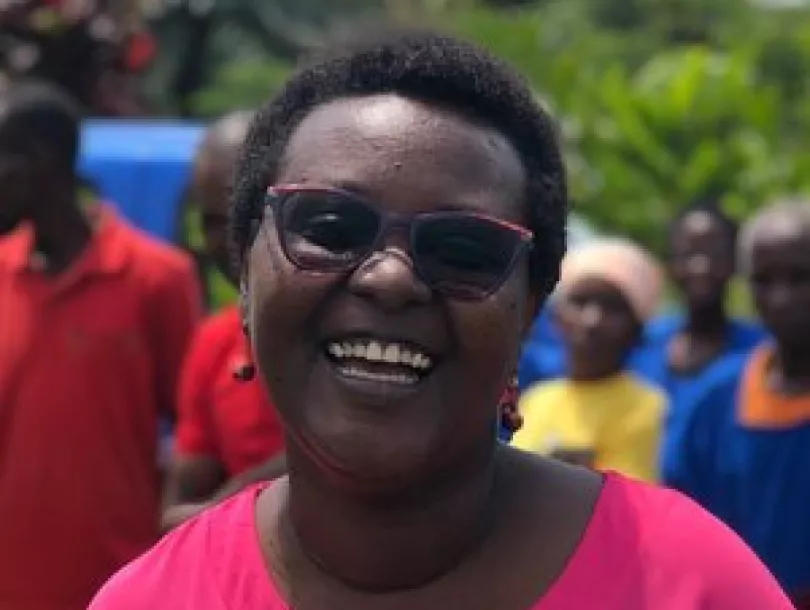Visiting Burundi: learning from 'the small ones'

Lire l'article en français ici.
Burundi is not only a small country, it is also one of the poorest countries in the world, and one of the most densely populated countries on the African continent (27,800 sq. km, population: 11 million). Its economy relies heavily on the agricultural sector, which, despite the paucity of arable land, employs over 80 percent of the population. Poverty is mainly rural and overwhelmingly affects small farmers. Climatic hazards, soil depletion and the resurgence of epidemics often aggravate this situation. Access to water and sanitation remains very low and less than 5% of the population has access to electricity. After decades of terror and violence, the current relatively stable political situation offers room to Burundians to open up to change.
Like smaller companies, smaller countries are able to react more rapidly to change. A big practical advantage of Burundi is that influential organisations necessary for this change can all be found in the capital Bujumbura. It’s a matter of proactively putting heads together.
"We have to bundle our strengths and put focus on where we can make a most significant change." - Esther Loeffen

Esther Loeffen leads the Development Cooperation team at the Embassy in Bujumbura. She is known in Burundi’s international development cooperation scene for her directness in approach. “Burundi itself and the international development organisations active in Burundi have to deal with small budgets for development, so we have to bundle our strengths and put focus on where we can make a most significant change. Our Embassy has made that its mission, which is carried out by everyone: from our ambassador Caecilia Wijgers to the development cooperation staff on food & nutrition security (FNS), sexual & reproductive health & rights (SRHR) and security & rule of law (SRoL): our three focus areas in the development strategy for Burundi.”
Ambassador Caecilia Wijgers adds: “Burundi may not be in the international development cooperation limelight, but it is definitely on our radar. We have seen great added value stem from this ‘bundled strengths’ development approach in other countries. We play our role as connectors and facilitators to create opportunities for the country to move forward on the social and economic ladder. Having said that, we see potential for Burundi as trading partner in for instance floriculture.”
Esther Loeffen adds: ”We bring fellow foreign embassies, the EU, WorldBank, NGO’s and Burundian government together, to share plans, to find possibilities for partnering and to make more impact.”
Integrated farmer plan
This approach is illustrated in the "Integrated Farmer Plan" (Plan Intégré du Paysan, PIP in French), which aims to improve small-scale agriculture. Its philosophy however, can be applied in other sectors and parts of society as well, education included. Its main focus is creating resilience, a future perspective and stewardship over one’s life.
This all starts with taking responsibility: all members of a household have a role to play. By drawing up the current situation, and where a family or community wants to be in 3 to 5 years. Visualising the future helps people taking concrete steps to realise the desired change. For instance by making trenches on the contour to stop water erosion, reforest hills to improve water infiltration, or create compost pits that produce organic manure.

The Integrated Farmer Plan (Plan Intégré du Paysan, PIP in French) aims to improve small-scale agriculture
PIP also has a scaling potential. In each village, it starts with a group of about 20 innovative farmers. One year later, a new dynamic can be observed in a community. This rapid scaling is a key driver for lasting change because people become intrinsically motivated to invest in their future.
The Orange Knowledge Programme also contributes to PIP. Project partners are working on embedding the PIP approach not only in the academic and Agri-TVET curricula, but also at the school level. Burundi programme manager at Nuffic, Sophie Primot: “Especially in agricultural schools, that have land available to train the students, I see the collaboration with the PIP approach as a great opportunity to not only teach new skills, but also trigger a change in mindset.”
Dance for change
Another focus area of the Orange Knowledge Programme for Burundi is Sexual and Reproductive Health and Rights (SRHR). Aimed at improving overall health conditions in community health centres and more specifically on gender equality and gender-based violence. This is done, for instance, by training Burundian dancers to trigger kids at school to rethink their ethics towards sexual harassment, and to break taboos in order to change the lives of women and girls.
A recently performed Tailor-made Training resulted in a performance on sexual violence. After a brother and sister, both in their 20’s, attended the dance performance ‘Les larmes de Crocodil’, they realised they had been poorly educated on this theme, and felt a big urgency to change it. They sat up all night to discuss this at home, with their parents. And later with their friends. “The dance and raps were saying more to me than a thousand words”, he said.
‘Ohgani mattah’
It does also take a lot of courage, especially after the hardship people have suffered. Even more for women to set a new standard. But, the front runners are there. Take Christine Ngaruko, who, against all odds, started her own flower farm named Christafarm. In the hills next to Bujumbura she runs a social enterprise growing various tropical flowers. “People told me I was crazy to see a business opportunity in growing flowers, ‘you can’t even eat those!’." She bought a little piece of land and made a nice start. But then, during the violent period in 2015, she was chased from her land during a 2015 uprising and had to stop operations. Today, she employs 30 people full time and is even exporting to the Netherlands.
She also found her way to Dutch training organisation Delphy through the Orange Knowledge Programme. Christine’s team was trained for two weeks on ‘ohgani mattah’ (organic matter, ed.) to improve the quality of the soil by using organic waste as fertiliser. “It was truly eye-opening to us, and our people are now even teaching how to produce better quality vegetables in their own villages!” She offers women a chance to franchise her business formulae elsewhere in the country, training them in her farm and supporting them on a distance, taking care of logistics to collect produce. She focuses on shared ownership to create more leverage, and on creating more jobs in rural areas. Christine: “I really want to push this new sector forwards in Burundi.”
"I really want to push this new sector forwards in Burundi." - Christine Ngaruko

What else can we as Nuffic do?
Besides funding various capacity building and training projects like Christafarm’s, which we monitor and evaluate regularly, we are constantly looking for ways to develop our added value as programme manager. Sophie Primot, country programme manager for Burundi: “As in many countries, we set up a workshop in Burundi for all Nuffic’s current and previous project partners. But this time, we also invited the people involved in other instruments, group training beneficiaries and alumni to the session. People shared their projects and lessons learned, but it became really interesting when partners came up with ways to collaborate over FNS and SRHR and integrate knowledge. For instance, the medical faculties are currently implementing a Community-based Education and Services (COBES) approach in their undergraduate medical curriculum. Joseph Nyandwi, the project coordinator, immediately saw an opportunity to connect to partners implementing the PIP approach to set up a network of rural community health centres within PIP hotspots."
How to collaborate with a francophone country?
Burundi is part of the French-speaking countries in our programme (Benin, Niger, Mali, Burkina Faso, Senegal, Guinea, Tunisia, Lebanon). In some of these countries participation in our programme can be further developed. Participating in a Dutch development programme, with English as the programme’s official language, seems in many of cases ‘a bridge too far’. But, is language the actual barrier?
For many francophone professionals applying for a Master’s scholarship, the English proficiency standard for admittance is often a barrier. But for short courses the challenge becomes even more apparent: people think they won’t be able to join, whereas in fact their English is often well enough. There are also French short courses to follow in the Netherlands.
In Tailor-made Trainings, as well as Institutional projects, the French language is used more often than one may think. Either the Dutch institutions have French-speaking staff or smart consortia are formed with organisations from other francophone countries (Belgium, France, or from the African continent). When asked in Burundi if language has formed a barrier so far, the fact that the country sees great value in participating in the mainly English speaking East African Community says enough.
After our visit, we came to the conclusion that agility and the urge to develop themselves make a strong combination in Burundians - great drivers for change. But it’s smart collaboration, the holistic approach and this strong focus in where the most significant change can be made that makes Burundi a ‘big one’ in change.